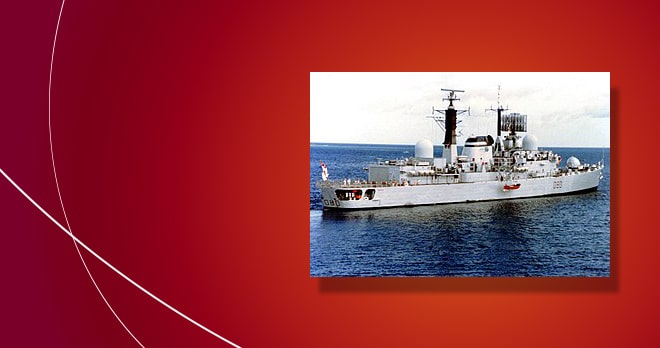Mesothelioma claim settles after first solicitors were unsuccessful

Mr B was a water filtration engineer, and during the early 1970s he worked for a company who designed and fitted a water filtration system to HMS Sheffield. He said in his statement that the filtration system was lagged with asbestos. There was some uncertainty though about which employers he worked for at the time. He was very unwell when he gave his statement to his first solicitors, and thought he was working for one of two companies. The claim was made to the later employers, Alfa Laval, but when more information about his employment was received it became apparent that he had only started at alfa laval shortly before HMS Sheffield was launched in 1974, so it was unlikely the water filtration system was being fitted so late. Unfortunately Mr B deteriorated and he died shortly after signing his statement, which said he was with Alfa Laval, so once his employment records were received it was too late for him to clarify.
His first solicitors were unable to continue with the claim as the statement alleged exposure during Mr B’s employment with Alfa Laval, but this was unlikely as the ship would have been at an advanced stage by the time he even started working for them.
Mr B’s family then instructed RWK Goodman. We searched unsuccessfully for witnesses who might be able to verify Mr B had visited HMS Sheffield during the course of his previous employment, or who could confirm Mr B came into contact with asbestos elsewhere. An application to the government’s fund of last resort was unlikely to be successful as Mr B’s statement only alleged exposure with Alfa Laval, who were insured, and the government fund only applies with uninsured insolvent defendants.
Some of the legislation in place at the time of Mr B’s employment imposes a duty not only on employers but also on the occupiers of premises. The Factories Act is one of the acts of parliament that imposes a duty on occupiers and – perhaps surprisingly – ships are classed as factories!
A claim was therefore made to the shipbuilders successors, BAE Systems Ltd as occupiers of HMS Sheffield whilst it was under construction. This argument was not something that had been raised as a possibility by Mr B’s first solicitors, or the barrister they approached for an advice.
Their primary defence was that there was no asbestos in use on HMS Sheffield. HMS Sheffield was sunk during the Falklands conflict, so there were no asbestos surveys or documents available. However an asbestos survey was produced for sister ship – HMS Cardiff – which was launched several years after HMS Sheffield. This, the shipbuilders said, conformed there was no asbestos on board HMS Sheffield – even though asbestos was found on the later ship, and despite the survey being completed just before the Cardiff was scrapped, and after there had been asbestos removal works over the years.
It was agreed that the 1970s was a period when the knowledge of the dangers of asbestos was developing, and shipbuilding practices were changing to phase out the use of asbestos. The defendants argued that practices had already changed before HMS Sheffield was launched, but we argued that the presence of asbestos on the later ship made this unlikely.
Proceedings were issued and the claim was settled by the defendants shortly after.
Mr B’s family were delighted by the settlement, particularly after the disappointment of thinking that there would be no recompense.